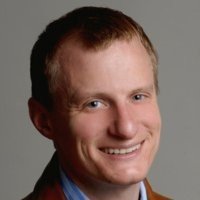Jordan Anderson serves as an Associate Professor at UC Berkeley, where he leads a dynamic synthetic biology lab that bridges the gap between cutting-edge research and practical applications. With a robust team comprising undergraduates, graduate students, postdoctoral researchers, and software programmers, Anderson fosters an interdisciplinary...
Jordan Anderson serves as an Associate Professor at UC Berkeley, where he leads a dynamic synthetic biology lab that bridges the gap between cutting-edge research and practical applications. With a robust team comprising undergraduates, graduate students, postdoctoral researchers, and software programmers, Anderson fosters an interdisciplinary environment that encourages innovation and collaboration. His lab focuses on developing new technologies that enhance automation in synthetic biology, streamlining processes from target selection to biosafety assessments and intellectual property management.
A significant aspect of Anderson's current research involves leveraging large language model (LLM) based AI tools to revolutionize the design and implementation of synthetic biological systems. By integrating advanced software solutions with molecular biology techniques, he aims to create more efficient workflows that can accelerate discoveries and applications in biotechnology. His expertise in programming languages such as Python and Java complements his foundational knowledge in molecular cloning and biotechnology, allowing him to develop sophisticated software tools that enhance experimental design and data analysis.
Anderson's commitment to mentoring the next generation of scientists is evident in his hands-on approach to education. He actively engages students in project engineering and software project management, equipping them with the skills necessary to thrive in the rapidly evolving field of synthetic biology. Through his leadership, the lab not only contributes to academic research but also prepares students for impactful careers in biotechnology and related industries, making a lasting impact on the future of science and technology.







